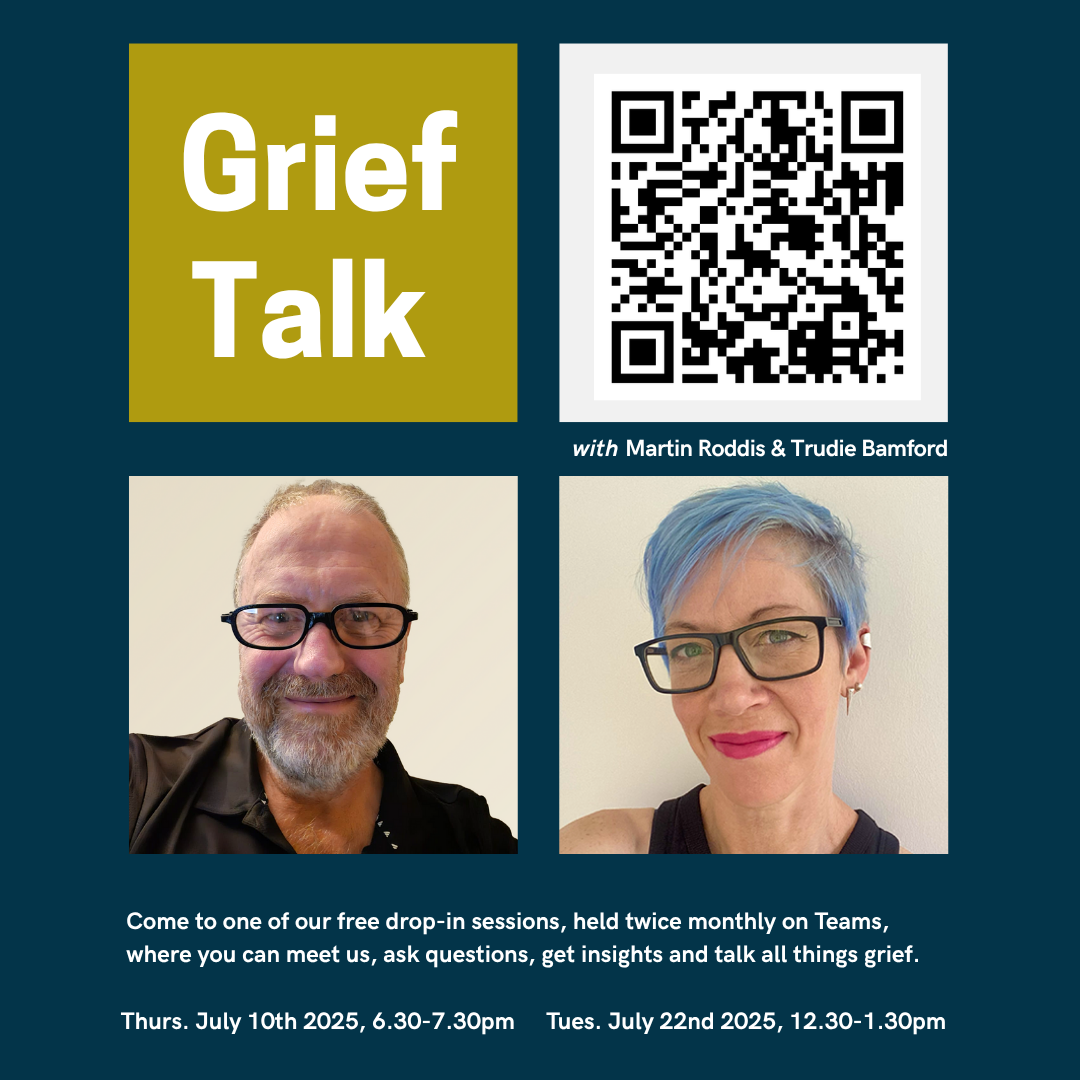
Not all grief wears black - and not all grievers are sad.
Sometimes they're angry. Or relieved. Or weirdly productive.
Sometimes they’re crying and also kind of...celebrating?(And yes, that’s still grief.)
Welcome to ambivalent grief - where the loss is real, but the feelings don’t come neatly labelled.
This is the kind of grief that doesn’t fit inside tidy frameworks or polite conversations. The kind that leaves people saying things like:
“I’m not sure what I’m feeling.”
“We weren’t close, but this has knocked me.”
“I feel guilty for not feeling more.”
“I didn’t even like them—but I can’t stop crying.”
If you work in healthcare, therapy, bereavement support, pastoral care or simply find yourself as the one people turn to, you’ve probably encountered this already. You may have even stumbled through it yourself.
If you’ve ever sat with someone grieving a complicated relationship, a painful estrangement, or a “thank god they’re gone but now I feel guilty about it” situation, you already know:
This is advanced-level grief.
And it goes beyond saying - or does it? - that this doesn't have to follow a bereavement. Grief follows loss, not necessarily death. Maybe it's the end of a relationship, that decree nisi comes through, you have the champagne chilling ready, but suddenly you're crying instead...
Hello ambivalence.
See, here's the thing - we're not tidy creatures. We're messy and unpredictable and conflicted and tangled and confusing and confused.
And that's okay. You don’t need to untangle every thread of someone’s emotional experience to offer real, empathic support. But let’s be honest, ambivalence can stir up uneasiness in us too. It’s easy to feel unsure when the grief in front of us doesn’t look the way we expect it to. Hands up who prefers black & white to shades of grey (not the saucy kind!)?
If this resonates, come to our next Grief Talk session, and let's carry on the conversation about how we can show up for others, especially when things are a bit murky.
Bring your curiosity, your confusion, or just yourself.
Sometimes they're angry. Or relieved. Or weirdly productive.
Sometimes they’re crying and also kind of...celebrating?(And yes, that’s still grief.)
Welcome to ambivalent grief - where the loss is real, but the feelings don’t come neatly labelled.
This is the kind of grief that doesn’t fit inside tidy frameworks or polite conversations. The kind that leaves people saying things like:
“I’m not sure what I’m feeling.”
“We weren’t close, but this has knocked me.”
“I feel guilty for not feeling more.”
“I didn’t even like them—but I can’t stop crying.”
If you work in healthcare, therapy, bereavement support, pastoral care or simply find yourself as the one people turn to, you’ve probably encountered this already. You may have even stumbled through it yourself.
If you’ve ever sat with someone grieving a complicated relationship, a painful estrangement, or a “thank god they’re gone but now I feel guilty about it” situation, you already know:
This is advanced-level grief.
And it goes beyond saying - or does it? - that this doesn't have to follow a bereavement. Grief follows loss, not necessarily death. Maybe it's the end of a relationship, that decree nisi comes through, you have the champagne chilling ready, but suddenly you're crying instead...
Hello ambivalence.
See, here's the thing - we're not tidy creatures. We're messy and unpredictable and conflicted and tangled and confusing and confused.
And that's okay. You don’t need to untangle every thread of someone’s emotional experience to offer real, empathic support. But let’s be honest, ambivalence can stir up uneasiness in us too. It’s easy to feel unsure when the grief in front of us doesn’t look the way we expect it to. Hands up who prefers black & white to shades of grey (not the saucy kind!)?
If this resonates, come to our next Grief Talk session, and let's carry on the conversation about how we can show up for others, especially when things are a bit murky.
Bring your curiosity, your confusion, or just yourself.



